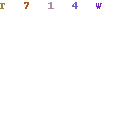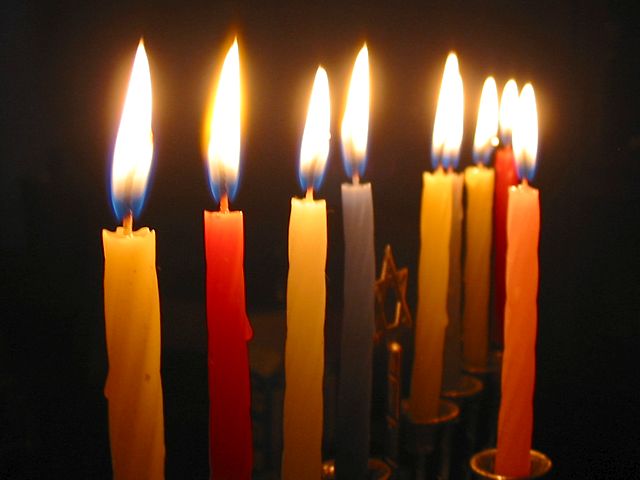I didn't make up the term. Someone else did. It refers to the day that commemorates one's aliyah. Literally, "going up,"
"aliyah" is the word used for a Jew's move to Israel, from anywhere else in the world, the Diaspora (an Israeli who moves to that Diaspora is said to have made
"yeridah" - going down). Such is the snobbery (or religious conviction) regarding the primacy of the Holy Land.
Five years ago today, I declared aliyah.
I had lived in Israel for approximately 7 years (in different stints) prior to September 7, 2006 (I kinda think of September 6 as the aliyah date, since that's when I boarded the plane...but the date of leaving and the date of arriving were not the same (and the fact that I focus on the date of departure may be representative of some aspects of my attitude -or simply the vestige of remembering when to go to the airport)).
My declaration of aliyah was the result of a practical decision. I had come to Israel the previous September for a clutch job that was a wonderful opportunity (and largely a wonderful job). But I came prematurely - on the timetable to the job's demands, when I was not quite yet ready to uproot myself. I was quite unsettled and didn't like feeling homeless (and felt guilty for the sentiment, since it was the same summer as Hurricane Katrina and Israel's Disengagement from Gaza - both events leaving many people truly homeless and with far more trauma).
So I realized that I could not decide whether living in Israel, the official Jewish dream for thousands of years, a move I believed to be "right" - was actually right for ME. And I realized that I could not make a healthy decision while I was suffering from maladjustment. I decided to declare aliyah (I had no objection to becoming an Israeli citizen), give myself time to adjust, and see how I felt about my living in Israel. I gave myself 5 years to adjust, admittedly, an arbitrary number. Today is that day. I've adjusted, though I'm still unsettled in a number of important ways. My decisions for the future are being held in abeyance nonetheless. I know my inclinations, and I have intuition regarding what will happen next, but in the meantime, I'm working on what is now, and trusting that the future will fall into place.
Not so different from what I wrote in my essay to Nefesh B'Nefesh, the organization that assists people with their aliyah. I am intrigued to discover that my attention to the making of decisions is not a recent thing.
Entitled::
אין שמחה כפתרון הספקות - there is no joy like the resolving of doubt.
(Identifying details have been removed to protect the innocent.)
If only…If only I really knew what the future would bring. It would make all decisions easier.
I first came to Israel at the age of 9, on a family vacation. It was a memorable trip. The airline bumped us and my parents made a scene. But more, it brought to life so much of what we had learned in school. We hiked and went to museums and tasted sufganiyot and davened at the Kotel (and saw the paratroopers swearing-in ceremony). We kids were regaled by parental reminiscences about how when they were in Israel in 1967, they could not come much closer to the Kotel than the King David Hotel. It was a wonderful trip, but I did not think of moving to Israel then.
I next came to Israel at the age of 17, here for my “year-in-Israel,” to learn Torah at [anonymous midrashah]. I did not experience a particular moment of revelation, but by year’s end (if not before I arrived in the country to begin with), I was certain of my long-term intent to settle in Israel. My approach was not starry-eyed or emotional, but simple and practical: for two-thousand years, Jews have been yearning to return to the land; we have the opportunity – who am I not to live here?
So when I graduated college, and I knew that I wanted to continue my studies, logic dictated that I come to Israel. For all intents and purposes (except for the bookkeeping of the Jewish Agency), I stayed for 5 years. I learned full-time, I taught part-time, and I paid my first bills as an adult in Jerusalem. I developed backbone when I fought with the municipality about arnonah. I learned to speak up for myself when people stepped on my feet on the bus without apology. I dreaded hearing “pigua music” on the radio, suffering through periods of mourning, as terror incidents increased (though we did not know then that the situation would deteriorate even further). I rejoiced that the flower stores of Jerusalem were open all-night Erev Pesach, and that Christmas came and went without fanfare (except in Beit Lechem, where the twinkling “seasonal” lights made sense). I knew the routes of every Jerusalem bus. I was very much at home…yet I was never quite sure that the time was right for me to stay.
Eventually, I decided I needed to shake things up. I had exhausted the opportunities for women’s learning then available, and wanting further progress, I went back to the States. My departure was “sanctioned” in that I had all three halakhically legitimate motivations for leaving the land (parnassah, talmud Torah, and social life). Uprooting myself was not easy, but the move was a good one at the time. Nevertheless, even as I knew that I was likely to stay in America longer than the 3 years of my learning program, I never planned to “settle down” anywhere but Israel.
Eight years later, the problem was that I hadn’t had the reason or opportunity to settle down anywhere – which made it harder to decide to come back. But in May 2005, [a different anonymous midrashah] made me an offer that I couldn’t refuse. A full-time job teaching in a post-high school midrashah is hard to come by, and I knew that I was very lucky to have the opportunity to come teach in Israel without spending most of my time in transit from one job to the next. And as difficult as it was to change my plans with the rapidity that their offer required (to the extent that there was no time even to do the paperwork for aliyah last summer!), I was pleased that the challenge was for only good things.
I did not envision this year as a “trial run” for aliyah. My commitment to settle in Israel had not abated and I knew the country well; what need was there for a trial run? Nor did I envision this year as a sabbatical. “Sabbatical” suggests taking a break from a regularly scheduled program, but I consciously left my position there when I came here. Rather, in what has become a norm, I have been taking each day as it comes, and appreciating my time and my activities. In doing so, I have also been laying tracks – establishing facts on the ground. Employment… housing… reconnecting with friends and colleagues…And the mundane details of daily life (finding the best supermarket, the right shiur, the nicest makolet man…and learning how to work the VOiP phone, how to keep warm in the winter, how to navigate the new bus routes…) – This is the stuff of moving to Israel.
The decision to make aliyah was never a decision for me; it was a given. As for the question marks in my own life that leave me with decisions to make…I am not sure that I can count on achieving the simchah of pitron ha-sefekot. Instead of making decisions, I am continuing along. Perhaps I will never have reason to settle down – but in establishing facts on the ground, I am settling myself down. Perhaps I will always wonder to some extent what I’m going to be when I grow up – but after close to 15 years in Jewish education of one form or another, I have grown up in the profession. I am making things work – in the most practical of ways. I cannot know what the future will bring; more, it is as I watch the future unfold each day that I make my desert bloom.























![[P8220001.jpg]](https://blogger.googleusercontent.com/img/b/R29vZ2xl/AVvXsEiign_0sHakojgD8BTr0EjeVOkK6HzxKzdQTQifEZnd_q_LJ6wCTFundRiZkhkHXqO0UViCwmjDNXjnu-KUMySgqBIUwpyt-ChiJk5n-w8Cn1T4QNIweMECUjuk4QMfou5usp58-CQm82Qa/s320/P8220001.jpg)











